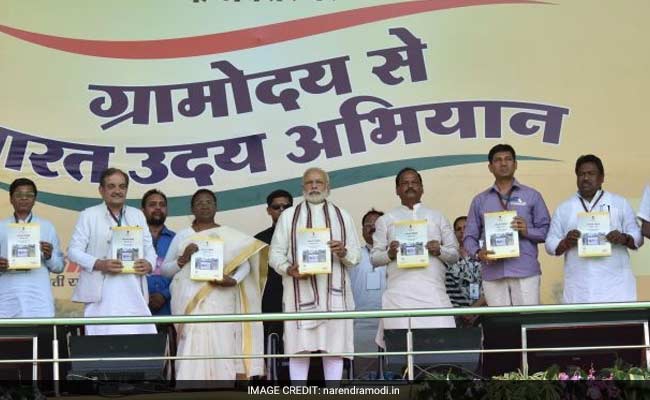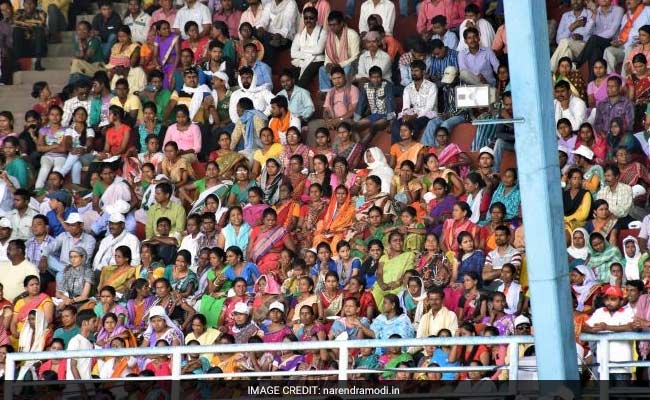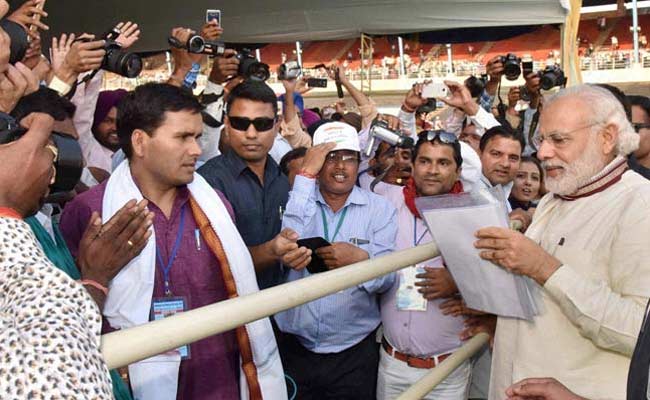This was democracy at its vibrant best. The Prime Minister came less to speak than to listen. He was flanked by ministers of panchayat raj from as many states as were present. Those state ministers who were not present were represented by their senior officials. The makeshift auditorium at Burari on the outskirts of Delhi was air-conditioned for the comfort of one and all, and was equipped with electronic devices for all to receive simultaneous translations in any one of the eight major languages of India. Thus, all participants could speak and listen in the language with which they were most familiar and truly participate without linguistic hurdles in the discussions.
For three continuous days, my state ministerial colleagues and I sat for endless hours on the stage taking in the stream of suggestions coming from those with the most hands-on, ground-level experience, while in separate continuing sessions in an adjoining hall, panchayat representatives of every hue worked on the joint declaration they were going to present to the Prime Minister. These discussions sometimes grew heated, especially when they reflected different party positions in different states, but gradually consensus positions were worked out and a coherent statement emerged reflecting the views and opinions of India's nation-wide panchayat community. The consensus conclusions also reflected the views of the weaker sections - SC, ST, OBC, minorities - and, above all, women who constitute over 40 percent of the panchayat community and will soon be breaching 50 percent.

Prime Minister Narendra Modi launched the 'Gram Uday Se Bharat Uday' programme in Jamshedpur last week
Times, alas, have changed. The current Prime Minister decided to abandon the previous practice of inviting panchayat representatives to Vigyan Bhawan and share with central and state dignitaries, from the very platform used by Presidents and Prime Ministers, their perspectives and proposals. Instead, Modi chose to do his grandstanding from a stage in Jamshedpur that relayed his thundering rhetoric to every village panchayat in the country, the people, like cattle, being herded to listen to his harangue. No question of listening to the people and their elected representatives. Only one-way communication. They would have to listen to him, then quietly disperse without uttering a word to His Mightiness.
His speech was of a piece with his authoritarian approach to governance, full of orders to the panchayats to do this, that and the other, but totally lacking in a democratic appreciation of the fact that his audience comprised panchayat representatives quite as democratically elected as he himself and, therefore, entitled to a respectful hearing and not forced to just listen to a diatribe from above. What the nation witnessed was a violation by the Prime Minister of the very spirit of the Constitution amendment that is designed to empower gram sabhas and panchayat members to themselves determine what their local needs are and how best to meet them.

Women constitute over 40 percent of the panchayat community
There was no reflection, no introspection on how to free the panchayats from the stranglehold of bureaucratically designed schemes that continue to place both planning and implementation in the hands of the bureaucracy, marginalizing the panchayats and the gram sabhas instead of bringing them centre-stage. Through the 73rd amendment, the longest and most detailed in the history of our Constitution, panchayats were envisaged as "institutions of self-government" (Article 243G), not hand-maidens of the central or state governments. Their role was to function autonomously, not to be obedient, subservient note-takers to diktats from the Prime Minister or anyone else. To this end, the Eleventh Schedule illustratively listed 29 areas of development and welfare work as the domain of the panchayats, and left it to state legislatures to carve out the details of the domain and then render that mandatory.
Where Dr. Manmohan Singh's seven major addresses on Panchayat Raj soberly focused on the technical details of what his central government could do or needed to do to strengthen effective devolution through redesigning Centrally Sponsored Schemes to make them panchayat-centric, Modi, like a school principal, ordered the panchayats to undertake specified tasks without even glancing at the architecture of his proposals to see how panchayats might be so empowered statutorily and administratively as to really be held responsible to the gram sabha and responsive to the people's demands and grievances.

The Prime Minister's message was streamed live to all the gram sabhas across the country
Modi urged his audience to concentrate on schools but showed no comprehension of the basic problem that under the Sarva Shiksha Abhiyan, School Management Committees are not embedded in the panchayat system, but kept rigidly in the babu-NGO regime with but token representation for panchayats and parents. Or that the Swachch Bharat Abhiyan's principal lacuna is not that toilets are not being built, but that they are not being used - and that the only way of getting them used is through involving the whole of the community through statutorily-empowered gram sabhas. Until systemically, specific tasks, real authority and solid finances are transferred to the panchayats, and the local bureaucracy and technocracy is subordinated to the discipline of the panchayats, gram sabhas will not be able to effectively exercise their right and duty to democratically hold their representatives responsible for the development of the panchayat and the welfare of the inhabitants.
These were the issues that Dr. Manmohan Singh would invariably address. Until his successor starts doing the same, Panchayat Raj in India will go the same way as in Gujarat - nowhere.
(Mani Shankar Aiyar is former Congress MP, Rajya Sabha.)
Disclaimer: The opinions expressed within this article are the personal opinions of the author. The facts and opinions appearing in the article do not reflect the views of NDTV and NDTV does not assume any responsibility or liability for the same.


